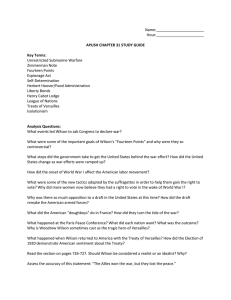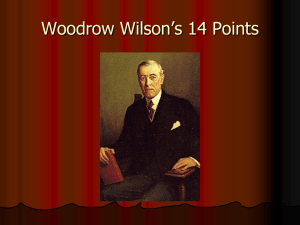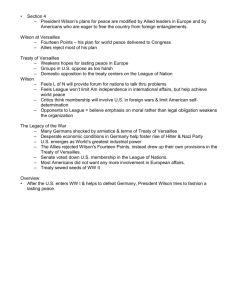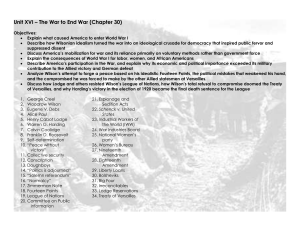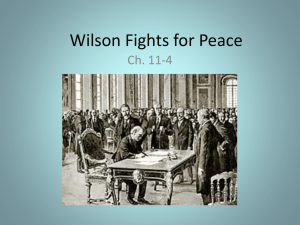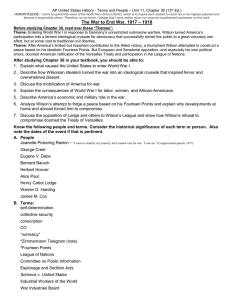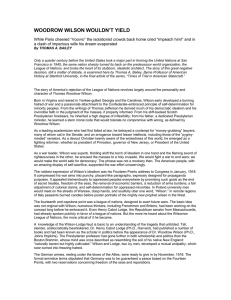Document 14118642
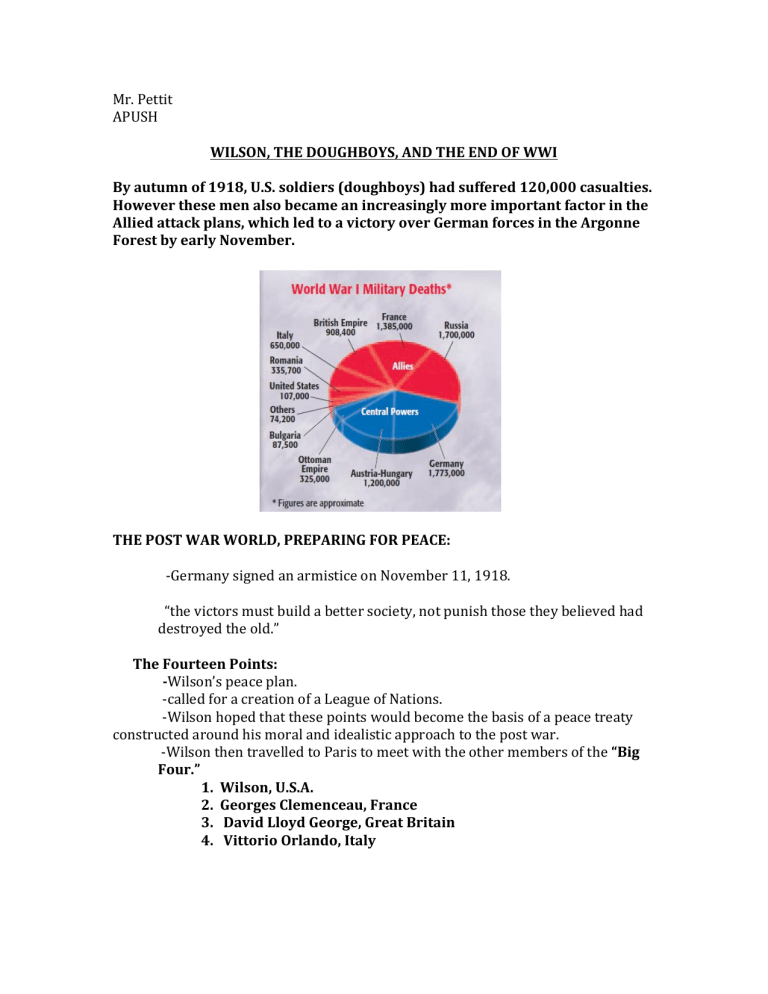
Mr. Pettit
APUSH
WILSON, THE DOUGHBOYS, AND THE END OF WWI
By autumn of 1918, U.S. soldiers (doughboys) had suffered 120,000 casualties.
However these men also became an increasingly more important factor in the
Allied attack plans, which led to a victory over German forces in the Argonne
Forest by early November.
THE POST WAR WORLD, PREPARING FOR PEACE:
-‐Germany signed an armistice on November 11, 1918.
“the victors must build a better society, not punish those they believed had destroyed the old.”
The Fourteen Points:
-‐ Wilson’s peace plan.
-‐called for a creation of a League of Nations.
-‐Wilson hoped that these points would become the basis of a peace treaty constructed around his moral and idealistic approach to the post war.
-‐Wilson then travelled to Paris to meet with the other members of the “Big
Four.”
1. Wilson, U.S.A.
2. Georges Clemenceau, France
3. David Lloyd George, Great Britain
4. Vittorio Orlando, Italy
Peace Conference/Versailles Treaty:
-‐Most of Wilson’s fourteen points discarded.
-‐Wilson insists upon a league of Nations, it is created.
-‐Germany suffered immensely; 33 billion in reparations. (war guilt clause)
Back Home: Rejection in the Senate:
-‐Wilson set off on grueling cross country speaking tour to raise support for
the League of Nations.
-‐tragicaly he suffered a stroke in Pueblo, Colorado after a speech.
-‐The U.S. never ratified the Versailles Treaty with the League of Nations due to strong Republican opposition led by Henry Cabot Lodge.
-‐Opinions on the Senate were broken down into 3 groups
-‐“irreconcilables ” staunch isolationists, against any treaty that included the League of Nations.
-‐“reservationists ” both mild, and strong. Politicians such as Lodge
who wanted to make changes to the treaty for a variety of reasons.



